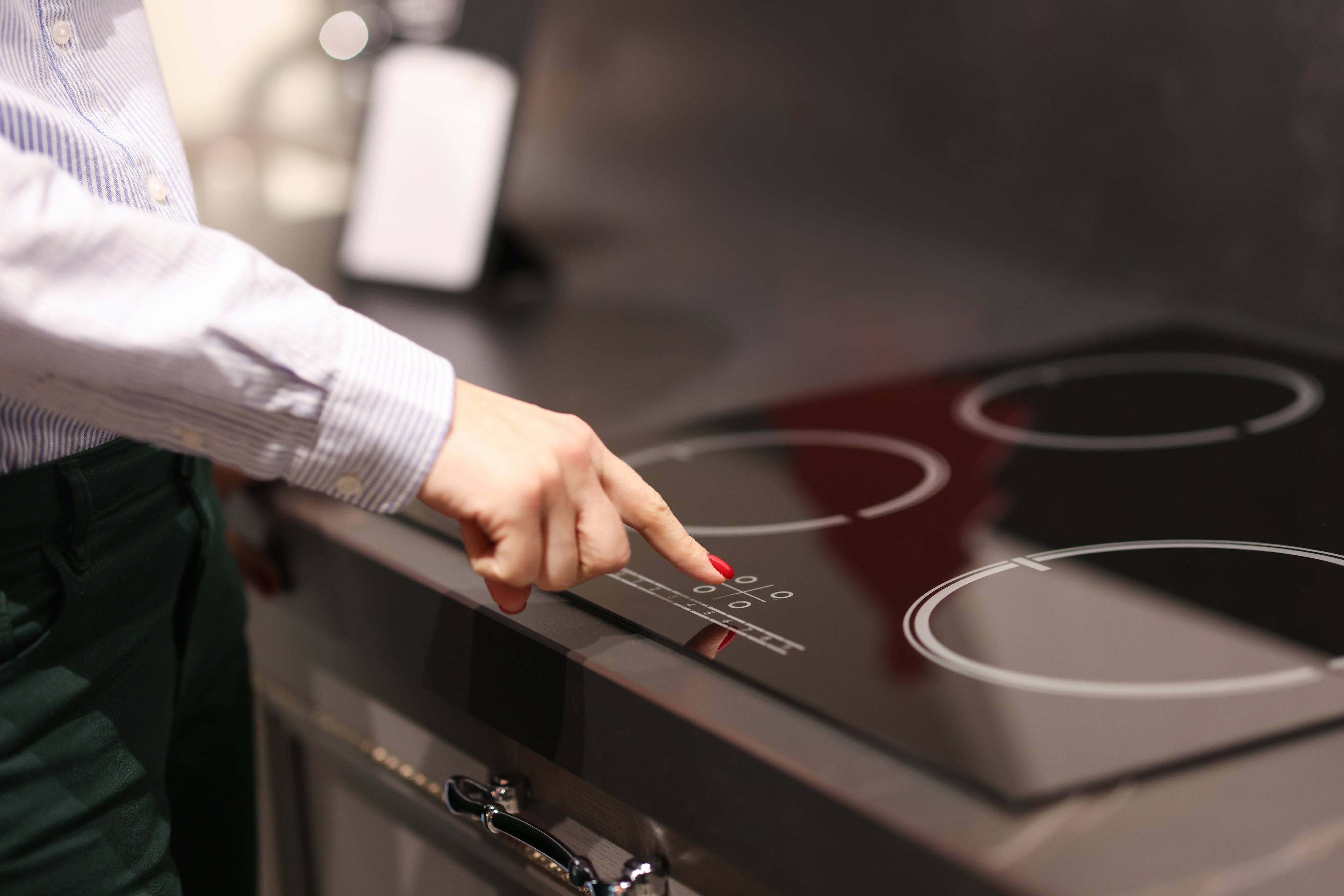Gas and electricity are the two main options when choosing a new cooktop. Both offer different advantages and drawbacks in terms of performance and maintenance. This article will explore gas or electric cooktop from all angles so that you can choose which type best suits your needs.
What is an Electric Cooktop?
An electric cooktop is a modern kitchen appliance that provides a convenient and efficient way to prepare meals. This type of cooktop typically comprises several heating elements, like coils or burners, powered by electricity. Moreover, electric cooktops provide an even heat distribution across the cooking surface and can be used with either pots or pans. Finally, these cooktops come in various sizes and designs to fit any kitchen layout and size.

Electric stoves are safe when cooking, preventing burns for you and your food!
What are Gas Cooktops?
A gas cooktop is a popular kitchen appliance that uses an open flame to heat cookware. It uses natural gas or propane as its fuel source, which produces heat energy through the combustion of these gases. Gas cooktops can provide even heat distribution across the cooking surface while accommodating different pot and pan sizes.

Gas stoves are perfect if you want control over the temperature.
Pros and Cons of Gas or Electric Cooktops
Gas Cooktops
The main benefit of using a gas cooktop is its energy efficiency. Gas is a fuel source that generally uses less energy than electric cooktops, making them more cost-effective in the long run. Additionally, the flame produced by natural gas burners provides consistently high temperatures that electric burners cannot match. This is ideal for those needing high heat to sear meat properly.
While gas cooktops have many benefits, there are also some potential drawbacks associated with them as well. One main concern is safety since open flames are involved in the operation of these devices. Even when they are turned off properly, there may still be lingering heat that could cause burns or fires if not handled carefully. Furthermore, these devices require proper ventilation to release air pollutants, so users should ensure that their kitchen has appropriate ventilation before installing them.

Be careful when operating your gas stove.
Electric Cooktops
One of the main advantages of electric cooktops is their affordability. They typically cost much less than gas or induction cooktops, making them an attractive choice for people on a budget. Electric cooktops are also easy to install and use, as they don’t require any professional installation or complicated maintenance.
On the other hand, electric cooktops have some drawbacks as well. They often take longer to reach the desired temperature than gas or induction options, meaning food can take longer to prepare. Additionally, because of their exposed heating elements, electric cooktops are more difficult to keep clean than other models.
Grease and spills can easily accumulate on the surface and be hard to remove without special cleaners or scrubbing pads. Finally, portability can be a factor when deciding on a gas or electric cooktop. Electric cooktops cannot be moved around like portable induction burners. Once installed, they must remain in place permanently unless uninstalled by a professional technician.

Make sure to clean any grease before they solidify!
Performance Comparison
Gas models have a slight edge regarding performance. They provide quick and precise temperature control with their instant heat response, allowing you to create more complex dishes that require precise cooking temperatures. Gas models can also be more energy efficient than electric models due to their direct flame heating capability.
Electric cooktops are becoming increasingly popular due to their ability to conserve energy. However, they require specific cookware made of ferromagnetic materials for proper operation and cannot be used with standard pans. Ultimately, gas or electric cooktop offer advantages and disadvantages depending on your preferred cooking type.

When cooking, it is important to have precise temperature control!
Maintenance Requirements
Gas cooktops require more maintenance than electric models due to the small crevices between the burners and potential gas leaks. Regular cleanings are necessary to keep gas cooktops in good working condition, with debris and grease buildup needing to be removed so gas burners can function properly. Gas cooktops also require gas detectors and ventilation systems to ensure safety and prevent gas leaks or carbon monoxide poisoning.
In comparison, electric cooktops require less maintenance since they have flat surfaces. While regular cleanings are still recommended, electric cooktops don’t need additional safety measures such as gas detectors or ventilation systems like gas models to do. Electric cooktop owners should also ensure that their wiring is up-to-date, as outdated wiring can create a fire hazard.

Always check for any gas leaks when using a gas cooktop!
How Do They Work?
When deciding between a gas or electric cooktop, the way the appliances heat your dishes will be the ultimate factor. A gas stove uses natural gas drawn from the main supply line in your home and directed to the burner. To create the flame, this mixture of gas and air is released through tiny openings and mixed with more air before the ignition system ignites it.
Adjusting the burner knob allows you to control how much gas is released. Your flame size will also increase or decrease depending on how high or low you turn the knob. This allows for maximum energy efficiency as only what’s needed to do the job.
Electric stovetops are powered by the electricity that flows through the metal coils or solid bars that make up their heating elements. When electricity passes through these elements, they become hot and emit a visible glow due to the electrical resistance. This heat is transferred from the element to the glass surface via infrared energy, allowing for efficient cooking.
The Choice is Yours!
Choosing the suitable gas or electric cooktop for your kitchen can be difficult, as each type has advantages and disadvantages depending on your preferred cooking. Knowing how they work, performance comparison and maintenance requirements are all you must consider when choosing a gas or electric cooktop. Ultimately, careful consideration is needed before deciding between a gas or electric cooktop to get one that best fits your needs and budget. Click here to check out our catalogue of gas cooktops today!





